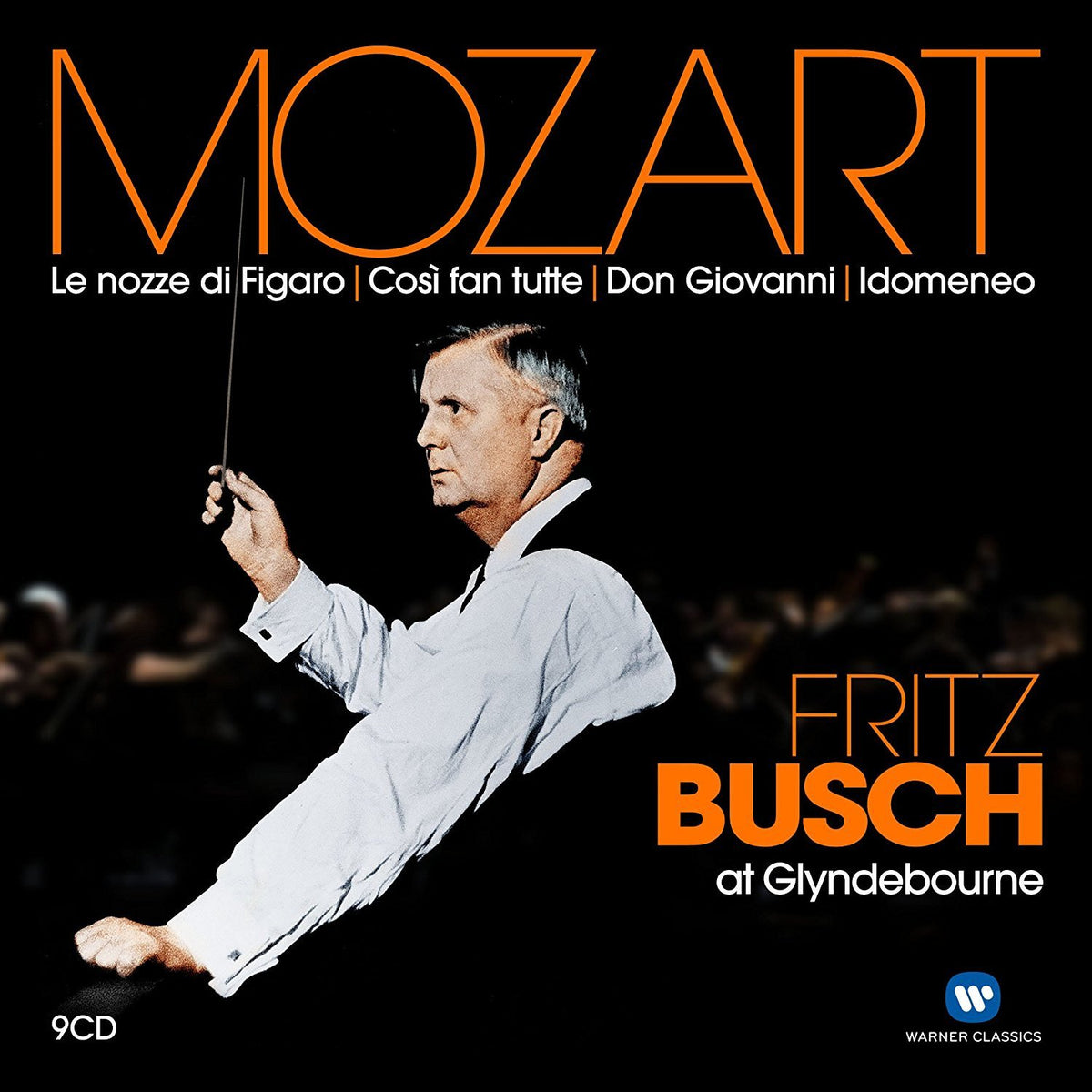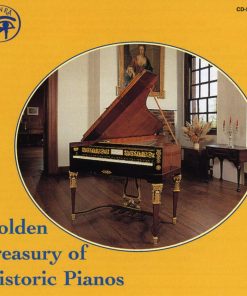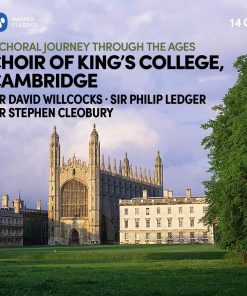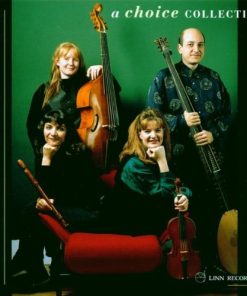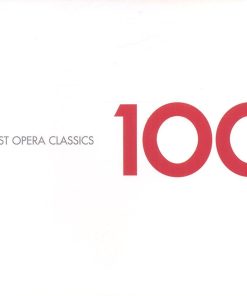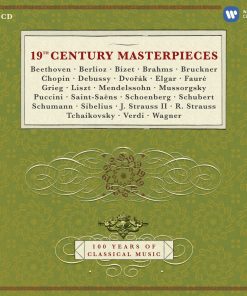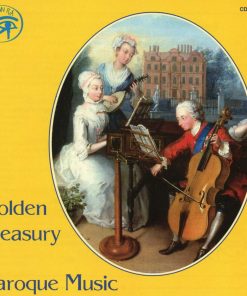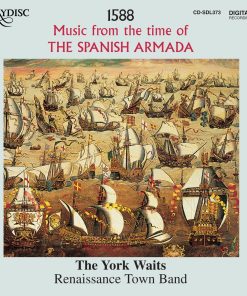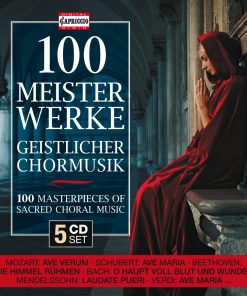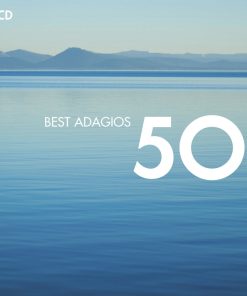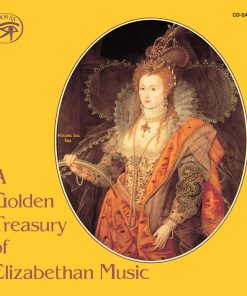Mozart: Le Nozze di Figaro, Così fan Tutte, Don Giovanni, Idomeneo – Fritz Busch at Glyndebourne (9 CDs) WARNER CLASSICS
$ 20,99 $ 12,59

The operas of Mozart are synonymous with the festival at Glyndebourne, where exemplary performances are staged amidst the verdant landscape of southern England.
Glyndebourne’s first music director was the distinguished conductor Fritz Busch, an exile from his native Germany. These pioneering recordings, deriving primarily from performances at Glyndebourne’s original theatre, date from the festival’s inaugural season (1934) and the years to 1951.
Both Le nozze di Figaro and Così fan tutte were world premiere recordings – indeed, Figaro was the first-ever complete recording of a Mozart opera.
In newly remastered sound, these classic interpretations of the three Da Ponte operas and Idomeneo can be enjoyed with unprecedented immediacy.
Fritz Busch (1890-1951) was one the greatest German conductors of the first half of the twentieth century, noted for his illuminating performances and his ethical principles. His father was a former itinerant musician who became an instrument maker, and his brothers were violinist Adolf Busch and cellist Hermann Busch. Fritz Busch went to Cologne Conservatory in 1909, studying conducting with Steinbach.
He became music director of the city of Aachen in 1912, serving there until World War I began. After serving in the army during the war, he returned to Aachen to conduct the Municipal Opera. Six weeks later, he was appointed music director of the Stuttgart Opera. He quickly became famous for his performances and for enlarging the repertory and discovering new composers. He premiered operas by Paul Hindemith and Pfitzner, and adopted the designer Adolphe Appia’s revolutionary approach for a staging of Wagner’s Ring. In 1922, Busch became music director of the Dresden State Opera. Among the premieres in his 11 years there were Strauss’ Intermezzo (1924) and Die Ägyptische Helena (1928), Hindemith’s Cardillac (1926), Busoni’s Doktor Faust (1925), and Weill’s Der Protagonist (1926). He maintained high artistic levels with often progressive and provocative stagings and used leading artists to design sets and costumes. At the 1932 Salzburg Festival he conducted a notable production of Mozart’s Die Entführung aus dem Serail, designed by Carl Ebert and superbly cast,
Busch’s open contempt of the Nazi government, which came to power in Germany in 1933, caused him to be fired from his post in Dresden. At the Teatro Colón in Buenos Aires he conducted the first-ever complete performance of Bach’s St. Matthew Passion to be given in the Americas. He returned to Europe, appearing with the Danish Radio Symphony Orchestra and the Stockholm Philharmonic, beginning a long-standing relationship with them.
Then John Christie, a wealthy English landowner, invited Busch to become music director of a summer opera festival at Glyndebourne, a country estate not far from the coast in Sussex. Busch accepted, bringing Carl Ebert as artistic director. Glyndebourne soon became a prestigious summer festival, famous for meticulous musical preparation and astute casting. Mozart became they mainstay of Glyndebourne, but Busch also staged larger-scale works, including Donizetti’s Don Pasquale and Verdi’s Macbeth. After the outbreak of World War II (which closed Glyndebourne from 1939-1945 and made travel to Scandinavia impossible), Busch withdrew mainly to South America, although he made appearances at the New York Philharmonic. His Metropolitan Opera debut took place on November 26, 1945 with Wagner’s Lohengrin. He remained on the Met’s conducting roster until 1949, but focused on conducting the company’s annual national tours. He frequently conducted the Chicago Symphony between 1948 and 1950, and resumed his association with the Scandinavian orchestras (in 1949) and with Glyndebourne (in 1950). He returned to lead a few concerts in Austria and Germany (Vienna State Opera, 1950; Cologne and Hamburg, 1951). Fritz Busch died in London on 14th September 1951.

Mozart:
Le nozze di Figaro, K492
Recorded: 6 VI.1934, 24 & 28 VI.1935, The Glyndebourne Theatre, Sussex
Willi Domgraf-Fassbaender (Figaro), Audrey Mildmay Susanna), Roy Henderson (Count), Aulikki Rautawaara (Countess), Luise Helletsgruber (Cherubino), Constance Willis (Marcellina), Norman Allin (Bartolo), Heddle Nash (Bartolo), Morgan Jones (Curzio), Fergus Dunlop (Antonio), Winifred Radford (Barbarina)
Così fan tutte, K588
Recorded: 25-28 VI.1935, The Glyndebourne Theatre, Sussex
Heddle Nash (Ferrando), John Brownlee (Don Alfonso), Willi Domgraf-Fassbaender (Guglielmo), Ina Souez (Fiordiligi), Luise Helletsgruber (Dorabella), Irene Eisinger (Despina)
Don Giovanni, K527
Recorded: 29 VI- 5 VII.1936, The Glyndebourne Theatre, Sussex
John Brownlee (Don Giovanni), Ina Souez (Donna Anna), Luise Helltsgruber (Donna Elvira), Audrey Mildmay (Zerlina), Koloman von Pataky (Don Ottavio), David Franklin (Commendatore), Roy Henderson (Masetto), Salvatore Baccaloni (Leporello)
Così fan tutte, K588: excerpts
Recorded: 12, 14 & 15 VI.1950, Glyndebourne, Sussex
Sena Jurinac (Fiordiligi), Blanche Thebom (Dorabella), Richard Lewis (Ferrando), Erich Kunz (Guglielmo), Mario Borriello (Don Alfonso)
Idomeneo, K366: excerpts
Recorded: 2 & 3 VII.1951, Abbey Road Studio, London
Richard Lewis (Idomeneo), Alexander Young (Idamante), Sena Jurinac (Ilia), Dorothy McNeil (Elettra)
Fast Shipping and Professional Packing
Due to our longstanding partnership with UPS FedEx DHL and other leading international carriers, we are able to provide a range of shipping options. Our warehouse staff are highly trained to pack your goods exactly according to the specifications that we supply. Your goods will undergo a thorough examination and will be safely packaged prior to being sent out. Everyday we deliver hundreds of packages to our customers from all over the world. This is an indication of our dedication to being the largest online retailer worldwide. Warehouses and distribution centers can be located in Europe as well as the USA.
Orders with more than 1 item are assigned processing periods for each item.
Before shipment, all ordered products will be thoroughly inspected. Today, most orders will be shipped within 48 hours. The estimated delivery time is between 3-7 days.
Returns
The stock is constantly changing. It's not entirely managed by us since we are involved with multiple parties such as the factory and our storage. The actual stock can fluctuate at any time. Please understand it may happen that your order will be out of stock when the order is placed.
Our policy is valid for 30 days. If you haven't received your product within 30 days, we're not able to issue either a return or exchange.
You are able to return a product if it is unused and in the same condition when you received it. It must also still remain in the original packaging.
Related products
MUSIC CDS
MUSIC CDS
MUSIC CDS
MUSIC CDS
MUSIC CDS
